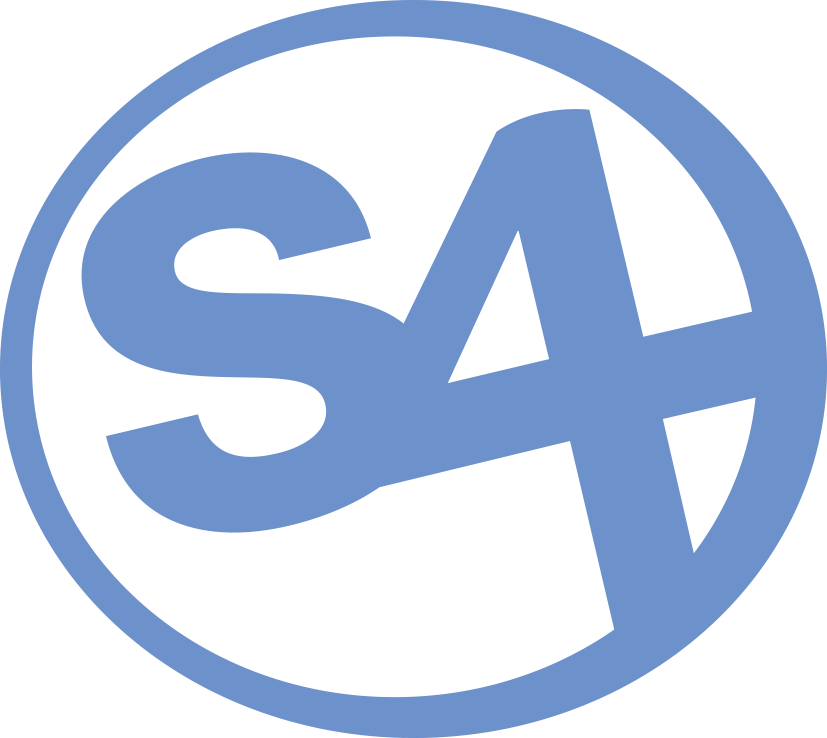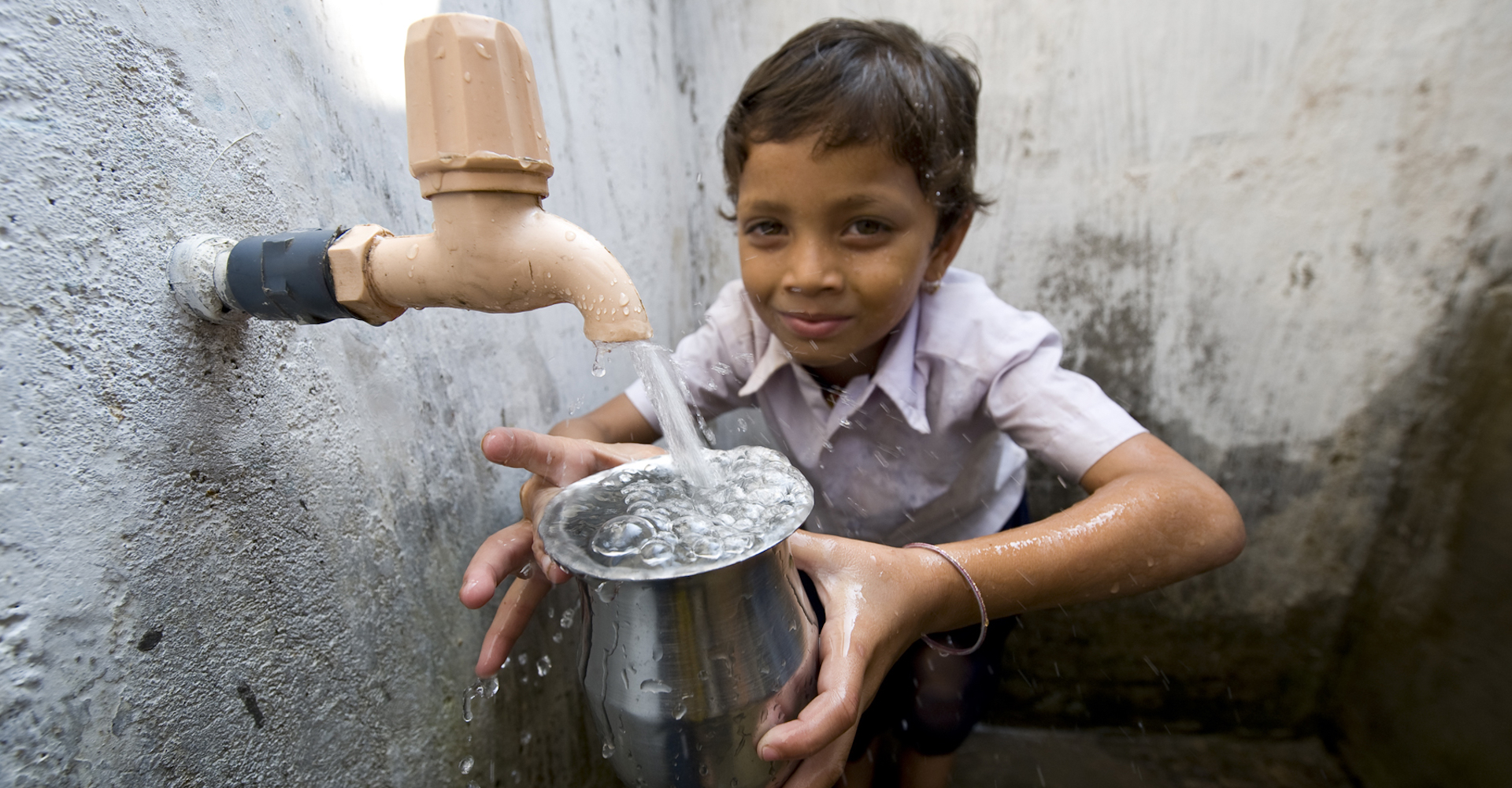
S4 Has Raised $120K for Charity:Water
Including $20K Raised At S4x25
Most of us have no idea what it’s like to be thirsty. We have plenty of clean water to drink — even the water in our toilets is clean! But many people around the world don’t have that luxury. Every day, about 1,400 children die from diseases caused by unsafe water and poor sanitation. But it doesn’t have to be that way.
There are simple solutions like drilled wells, spring protections and BioSand filters that help provide clean water to communities around the world. Charity:water builds and maintains these systems. 100% of the money we donate to charity:water is used to build clean water projects. They raise money for administration and overhead separately.
The $20,000 raised at S4x25 will build a system for a 500-person village. When it’s complete, charity: water will send us details and GPS coordinates so we can see the exact community we helped.
The ICS community understands the importance of critical infrastructure and what automation can bring to the delivery of key services like power, transportation and … water. It is amazing what a difference basic water systems can make to a village that doesn’t have ready access to clean water. The money raised at past S4 conferences has provided clean water to villages in Sierra Leone and Uganda.
S4 Charity:Water Campaign Funded Projects in Uganda
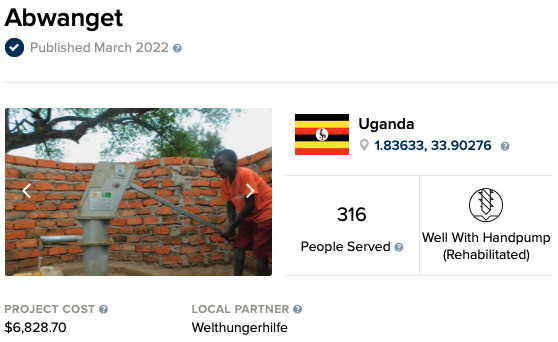
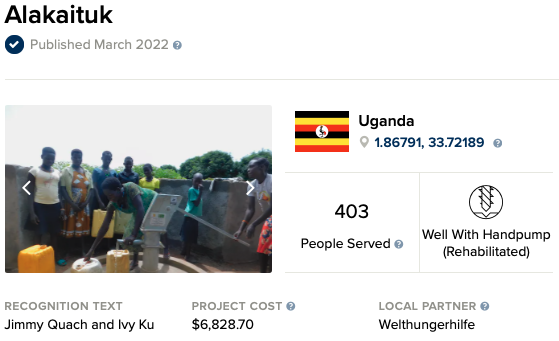
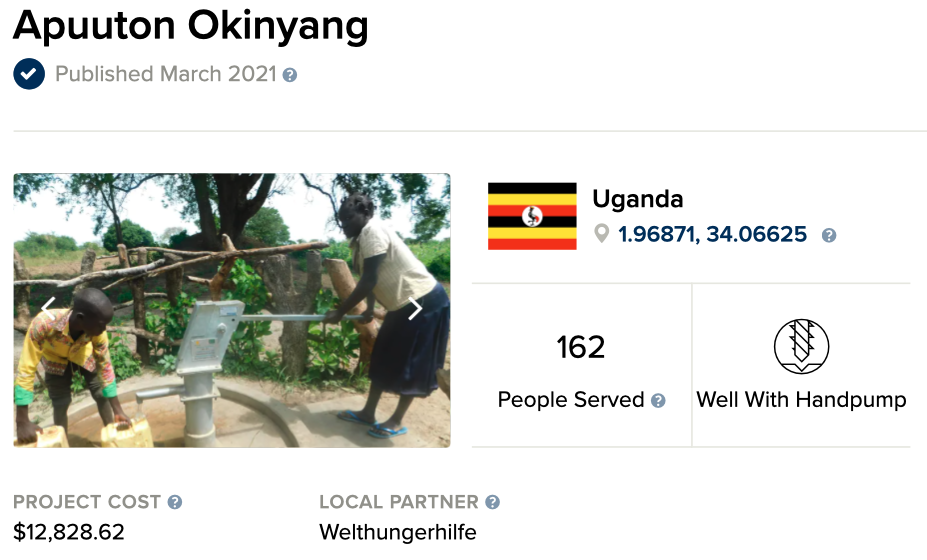
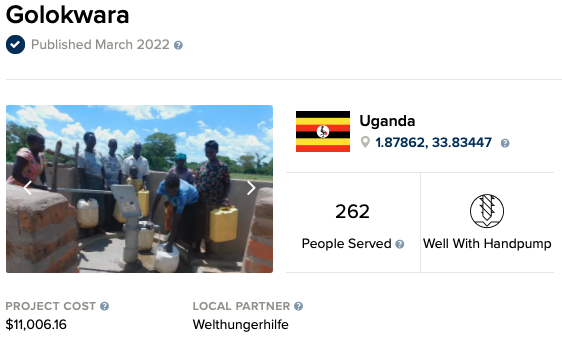
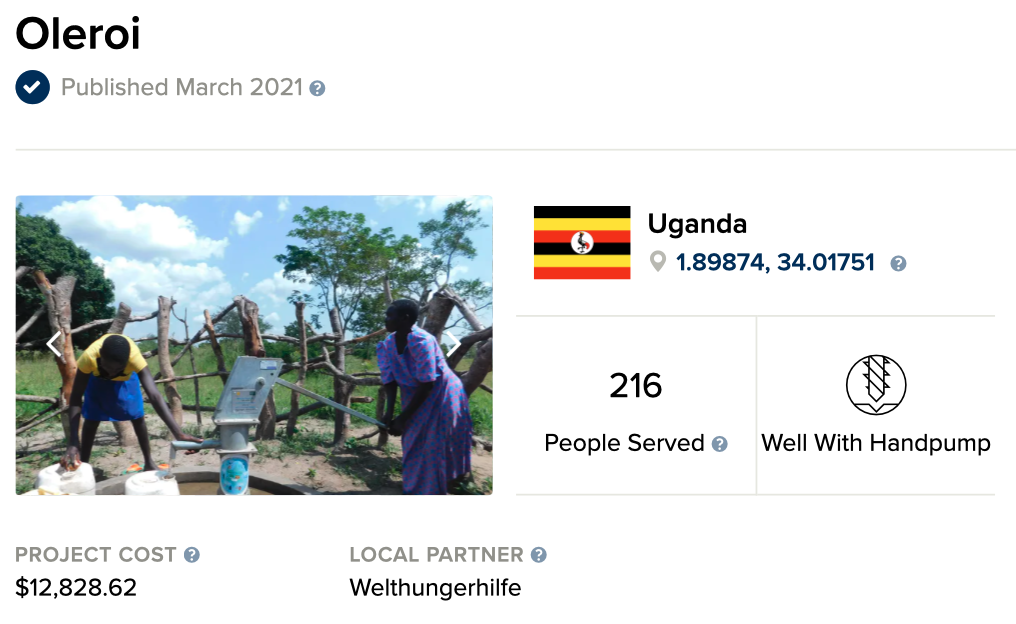
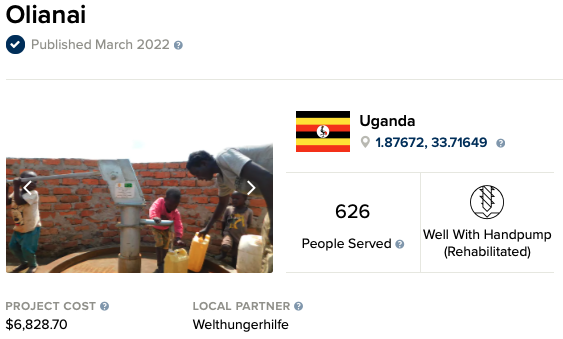
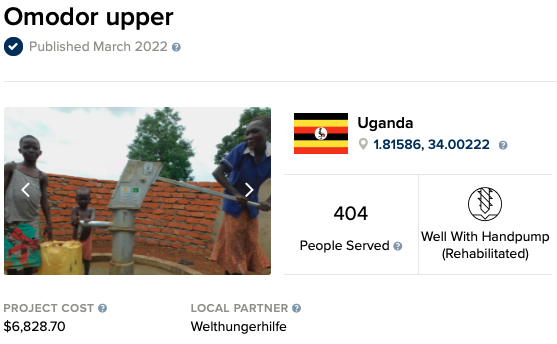
These seven wells with handpumps for villages in Uganda were implemented by charity:water’s local partner Welthungerhilfe. Charity:water relies on the expertise of local partners like Welthungerhilfe to choose the best solution for each unique situation. In this case, Welthungerhilfe’s thorough understanding of how to implement effective, sustainable water projects in their area led them to choose a well with a handpump.
Wells access subsurface aquifers, which are better protected from microbial contamination than surface water and provide a more reliable supply of water during dry seasons and droughts. Construction begins with studies to identify the most suitable location. Once a location is selected and the aquifer is reached, the well is lined, disinfected, tested, and fitted with a handpump to bring water to the surface.
Along with implementing water projects, our local partners also facilitate sanitation and hygiene initiatives to help promote everyone’s long-term health. These initiatives are often championed by community members themselves, who work hard to create positive change within their community.
Clean water means education, income, and health—especially for women and girls.
S4 Charity:Water Campaign Funded Projects in Sierra Leone


The Jerry Can Challenge At S4x24 (Will Be Back At S4x26)

Many people in developing countries use Jerry Cans to haul and store their drinking water. The standard five-gallon Jerry Can weighs about 40 pounds when full. Millions of people around the world spend hours each day walking to get water, often not even clean water, because their village has no water source. They have a variety of ways to carry it … strapped securely on their backs, held tightly to their hips or balanced on top of their heads.
The Jerry Can Challenge at S4x24 gave attendees an opportunity to experience this and raise money by carrying a full Jerry Can over a less than quarter-mile course. S4 donated $40 to charity:water, $1 per pound, for every Jerry Can carried. 140 full cans (5600 lbs) were carried, and this raised $5,600.
UPDATE: 46 speakers used their $100 every.org charity donation certificate in the speaker package to donate to charity:water. This pushs the total S4 donations to charity:water over $100K.
